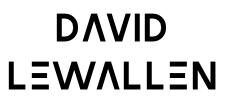Google has been at the forefront of the search engine market since its inception in 1998. The company’s success can be attributed to its innovative approach to ranking websites in search results. Prior to Google, search engines relied on the content written on a given page to determine its ranking in search results. This method was easily exploitable, as webmasters could simply stuff their pages with keywords in order to rank higher.
In order to introduce the human element into its ranking algorithm, Google purchased the largest directory at the time, called DMOZ. This allowed the company to start its ranking process by returning results from websites that had been reviewed by a human as being relatively high-quality. However, with new websites popping up every day, it was impossible for all of them to be reviewed by a human at scale.
As a solution, Google began to look at backlinks, or when a content creator or webmaster references another website within their article. Since it takes a human being to create a hyperlink, Google could use this fact to prioritize pages with a lot of links in their ranking algorithm. The company started by assigning a weight to known high-quality sites within the DMOZ directory. For example, if the New York Times linked to another website within an article, Google could determine algorithmically that a trusted human being is saying that the website is of high quality.
From there, Google created a mathematical link ranking system called PageRank. Every webpage in the company’s database was assigned a PageRank based on linking relationships. This PageRank was hierarchical and logarithmic, meaning that a website with a high PageRank could pass on a significant portion of its ranking to other websites it linked to.
Today, Google continues to evolve its ranking algorithm to provide the most relevant and high-quality search results to users. The company’s recent “Helpful Content” and “September 2022 Core Algorithm Update” reward websites with expert-written, original content, indicating a shift towards prioritizing expertise over link equity.
